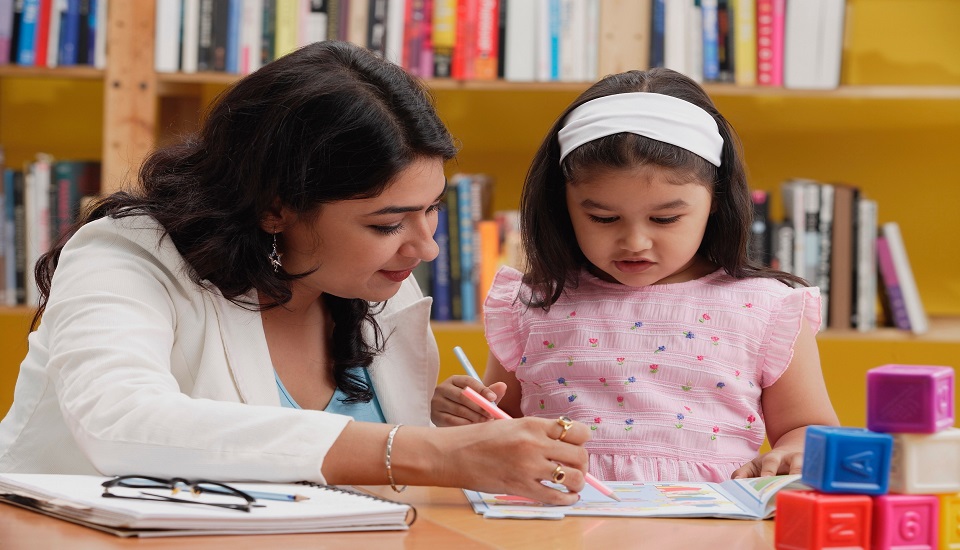A child solves a complex math problem that stumps their teacher but cannot find the homework from yesterday. Or a child who memorizes every detail about dinosaurs struggles to remember to brush their teeth. Sound familiar? Welcome to the fascinating world of parenting a twice-exceptional child– one who is both profoundly gifted (PG) and has ADHD.
Let's start with understanding giftedness and explore some tips to balance your child's gift for advanced thinking with their need for support in basic organization and attention.
What is PG-ADHD?
ADHD makes it harder for the brain to focus and control activity levels. When paired with profound giftedness (PG), it creates a unique mix of strengths and challenges. Your child might show:
- Strong creative thinking and problem-solving skills but trouble finishing basic tasks
- Deep focus on favorite topics while struggling to pay attention to other crucial things
- Quick understanding of complex ideas, yet difficulty with simple organization
There are three main types of ADHD:
- Mainly Inattentive: Your child often seems distracted
- Mainly Hyperactive: Your child has lots of energy and acts without thinking
- Combined: Your child shows both types of behaviors
Before you move to the topic, can we ask you a quick question? Do you follow us on Social Media? If not, then you’re missing out on a lot of informative content. We regularly share upgraded educational content, tips, feedback, and more. Check us out by clicking the profiles here - Facebook / Twitter / LinkedIn / Pinterest / Instagram / YouTube
Why Getting the Right Diagnosis Matters?
PG children with ADHD often display exceptional talents but may struggle with organization, time management, and emotional regulation. Their high creativity and ability to hyper-focus on areas of interest can sometimes mask ADHD symptoms, leading to misdiagnosis or missed diagnosis. A thorough evaluation is crucial for understanding their needs.
Misdiagnosing or overlooking ADHD in a PG child can lead to:
- Using strategies that don't work for your child
- Missing chances to help with time management and impulse control
- Your child feels guilty when labeled as lazy
Collaborate with professionals to get proper assessments, including checklists and evaluations, for an accurate diagnosis and effective interventions.
Make Home Life Better
Try these proven tips to help your child succeed at home:
- Play to their strengths. Notice and praise what they do well.
- Create clear routines. Use picture schedules and reminders.
- Give quick feedback. Don't wait to address behaviors.
- Help with time awareness. Use timers and break down tasks.
- Make time management better. Use color coding and schedule buffers.
Resources for Parents
Educating yourself about PG-ADHD can be of immense help. Here are some recommended resources:
- Look for books and articles by experts like Dr. Russell Barkley and Dr. William Pelham.
- Join communities of parents navigating similar challenges.
- Seek professionals who specialize in ADHD support.
- Attend seminars to learn more about giftedness and ADHD.
- Enrol in special education courses
Getting Help at School
Try talking to the school authorities to create the right accommodations in school.
Classroom Changes
- More time for tests and homework
- Shorter assignments that still show mastery
- Quiet testing spaces
- Freedom to choose where they sit
- Creative ways to show what they know
Organization Help
- Teaching planner and calendar use
- Providing class notes
- Using colors to organize subjects
- Giving both written and spoken instructions
Special Education Plans
If ADHD affects your child's learning, two main support plans can help: IEPs and 504 Plans.
An IEP includes:
- Specific learning goals for your child
- Special education services
- Modified teaching methods
- Regular progress tracking
- Team meetings with teachers
To get an IEP, request a school evaluation in writing. Accordingly, the school will look at your child's needs and work out all the adjustments needed.
A 504 Plan offers helpful adjustments in regular classrooms, such as:
- Extra time for tests
- Flexible homework deadlines
- Special seating options
- Use of technology
- Behavior support strategies
To start a 504 Plan, talk to your child's teacher or school counselor and provide medical documentation of ADHD.
The IEP and 504 Plan are strictly legal. Therefore, make sure that your child's school cautiously follows them.
How to Manage Mixed Behaviors?
Gifted kids with ADHD often show interesting patterns:
- Getting lost in favorite subjects while forgetting other work
- Showing brilliant thinking but losing homework
- Taking smart risks that might seem too impulsive
Parents should:
- Know that strengths and struggles often come together
- Help find solutions instead of making excuses
- Teach ways to handle difficult situations
Building Confidence
Many bright kids with ADHD feel bad about their struggles. Help them feel better by:
- Praising their effort, not just results
- Encouraging them to speak up for their needs
- Showing them that mistakes help us learn
When to Think About Medicine?
Consider ADHD medication when:
- Daily life becomes too hard
- School grades drop despite trying other help
- Your child starts feeling bad about themselves
Always talk to a doctor about medication choices.
Bottom Line
Stay patient, flexible, and focused on what works for your family. Remember that each child's path looks different. With good strategies, support, and enrolment in an ADHD course in Mumbai, you can help your child reach their full potential.
We believe education should be accessible for everyone. That’s why we don’t charge for our blogs. Find the right course that will help you in your career with us, contact us at - 1800–212–6400. You can mail us at act@asiancollegeofteachers.com.
Written By : Varsha








